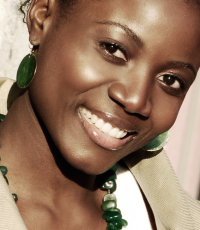Africa is rising, or has risen, depending on the angle from which one chooses to analyze it. In technology the continent appears to be fast-tracking others. In fact, a recent report about Africa’s internet usage growth, published by The Citizen, stated that it has surpassed the global average of 480%. Africa’s stands at 2,000%. So how high does this so-called “rise” reach? Does it extend to social issues? Gender-related? Is today’s educated African woman empowered to make decisions irrespective of traditions, religious beliefs and societal “values,” considering the rising “power,” if one can term it as that, of the continent? A shocking reality is that she might not be.
Today, traps that formerly ensnared African women are being replaced with programs and organizations that seek to set them free and empower them. The spring of women’s organizations and conferences appear to indicate that there is or has been advancement. But how far is the reach of this progression? If young African women are being empowered, how is it that some cannot stand up against such intimidation as sexual harassment at the workplace or even identify the behavior as such? If young African women are being empowered then why is a growing number of them throwing themselves at married men for this false sense of security? If young African women are being empowered, why do most of them still believe an unmarried 28-year-old is somewhat of a failure in life? If young African women are empowered then why do some, even the educated folk, lack a better understanding of the use of contraceptives?
The word “empowerment” has come to echo with such negative connotation when all it does, really, is to help women grow into their own, think independently and make decisions that often come back to build up the home. Could the shame in today’s African woman’s state of empowerment be that she has grown to accept the way things are, partly because fighting certain issues would mean fighting an establishment that appears to control various aspects of her advancement in life? Could another shame lie in her perspective that behaving outside of the “norm,” even if it were for her good, would automatically ostracize her from the same community she regards family?
Should the debate then shift to a question of whether most women realize their worth? And on the subject of worth, could it be subjective? Can a woman who chases after married men claim she has worth? Some do. Can a woman who easily feels threatened by another woman at the workplace – just because she wears a strong belt of professional experience – claim she’s confident? Unfortunately some do. So then how successful have we been in this quest to empower our women? Is this where Africa foresaw her children to be in 2012? Was this ever part of her dream for her gender?
Africa can advance all it wants; in fact its advancement is what its citizens have been working tirelessly for. But in the desire and rush to move forward, it is crucial to use the same advancement to socially empower the people meant to benefit from it.







